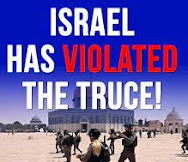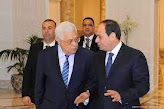Ebrahim Raisi who overwhelmingly won Iranian presidential election on 18th June 2021 held a press conference on Monday to elaborate on his major domestic and foreign policy priorities.
In his preliminary remarks, the president-elect praised participation of people in the elections, calling it an epic. He said it sent an important message to the entire world.
He said people high turnout in the election took place despite the coronavirus pandemic, propaganda by the enemies, and economic hardship.
Following are excerpts from his remarks:
- The message of the election was to administer justice and fight corruption.
- My administration will remain loyal to the promises that I have made during the presidential campaigns.
- To improve the economic condition of the people.
- To administer a law-abiding and effective managerial system.
- I also thank services by the successive governments since the 1979 Islamic Revolution. However, in certain cases due to mismanagement Iran is facing problems and is lagging behind.
- The world, particularly the West, should realize that the situation in Iran has changed through the people’s vote.
- Our foreign policy will not begin with the JCPOA and will not end with the JCPOA.
- We will seek a balanced relationship with the outside world.
- National interests will be considered in negotiations with foreigners.
- Negotiations should produce results.
- The United States should have realized that maximum pressure on Iran has been fruitless.
- The JCPOA has been violated by the United States and the Europeans have also not abided by their commitments under the multilateral agreement.
- Iran wants Europeans to commit themselves to their obligations.
- Liquidity should be managed. It should be directed toward the production sector.
- We will make production enticing.
- And we also should administer an effective tax system and make certain business activities like those in gold market and housing unattractive.
- All sanctions must be lifted and their removal must be verified. America must abide by its commitments under the nuclear agreement.
- As a lawyer I defend human rights
- As a lawyer I have always defended the people’s rights. I have defended human rights.
- Those who have violated the rights of people in the world must be held answerable.
- Those who have defended the rights of the people should be praised.
- Even today I consider myself tasked to defend the right of all people all around the world.
- This is my honor as prosecutor general to defend the rights and welfare of the people.
- Bident must lift all sanctions.
- Biden must prove his sincerity by lifting all sanctions.
- The Iranian people don’t have a good memory about the JCPOA.
- The Iranian missile program is not subject for negotiations. Why does the US which has not honored its commitments under the JCPOA is talking about other issues?
- Certain Western countries are now home to assassinators of Ayatollah Mohammad Hossein Beheshti and prime minister Mohammad Ali Rajaei.
- The West must now be held accountable that why has it been hosting murders of Ayatollah Beheshti.
- Professionalism, revolutionary spirit, have the will to fight corruption will be the chief criterion for forming the government.
- We definitely pursue for implementation of comprehensive partnership with China
- We have a good relationship with China since the Islamic Revolution. There is great potential for cooperation.
- Implementing the (25-year) comprehensive partnership will definitely be on the agenda.
- The Islamic Republic has been insisting on referendum for settling the Palestine conflict.
- Iran has always been defender of the oppressed people including the Palestinians and this has been stated in the constitution and being insisted on by Imam Khomeini and Leader of the Islamic Revolution.
- Saudis and it allies should stop war on Yemen. This war should be stopped immediately. Yemen should be managed by the Yemenis themselves.
- Iran, Saudi Arabia can reopen embassies.
- Our priority is relations with neighbors.
- In view of the Islamic Republic reopening embassies between Iran and Saudi Arabia is something that can happen.
- There should be no problem for relations between the two countries (Iran and Saudi Arabia) as well as dialogue with all regional countries
- Investment by Iranians abroad is a priority.
- Helping Iranians return to the country is also on the agenda.
- The entrance of Iranians to the country should be facilitated.
- Investment by the Iranians living abroad in the country is highly prioritized.
- Safety is for all and all investors should know that today the Islamic Republic of Iran is one of the safest places for investment and the government guarantees it.
- Talented persons can propose their views on better management of the country and a mechanism has been devised in which experts can present their ideas.


















